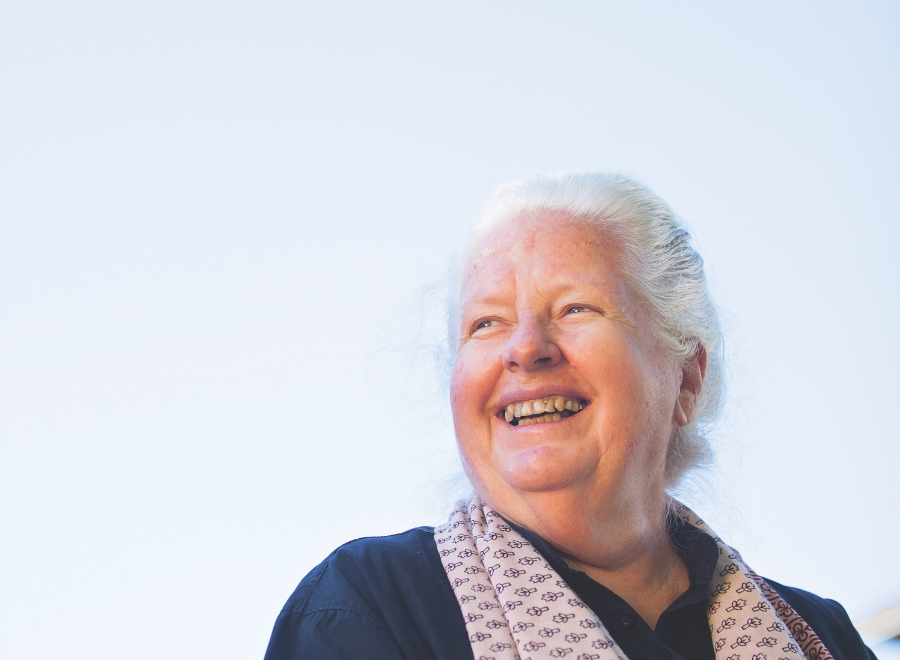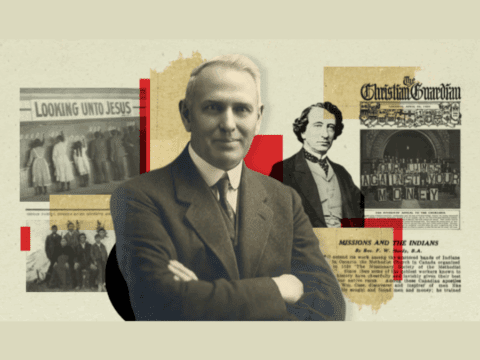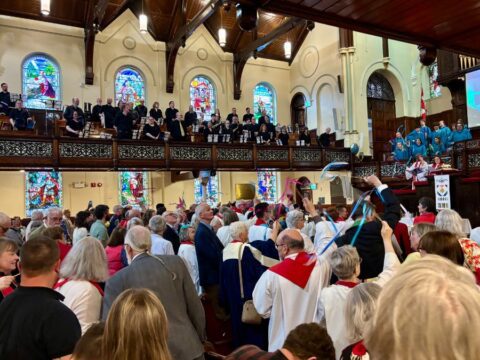Ginny Shrivastava spoke with David Evans for a series on Intriguing United Church people you may not know but should.
Let’s see — where to start? Well, I grew up in Burlington, Ont., went to Queen’s University [in Kingston, Ont.] and was involved with the Student Christian Movement, which actually helped to set the direction for my life in a kind of socialist, social-development line. Then I spent a year in Indonesia in 1963-64, and I give that experience full credit for preparing me to marry into Asia. I knew I could learn another language, make friends in another culture and eat chilies in my food daily.
After my time in Kingston, while studying adult education and community development at OISE [Ontario Institute for Studies in Education] in Toronto, I met Om Shrivastava. In a year we were married and I was on my way to Udaipur. I knew when I met him that he was wanting to return to India, and that was fine with me. I said, “Yeah, I think I can do it!”
Astha is a Hindi word that means “deep faith” or “conviction.” People sometimes say they have “astha” in God — they just know there’s a God. And we have astha in the people, the common man and the common woman. At our organization Astha, we know there is ability and strength in there; it’s just a matter of helping it to come out, and then the people can work hard to solve their own problems — and the problems of the country too.
Our approach was to build up strong people’s organizations, with the faith that the people know best what pinches them the most. So it didn’t matter if they wanted to work on a drinking-water problem or a getting-the-school-teachers-to-come-regularly problem. We went with the issues they raised.
The myth is that an Indian family looks after its own. But widows and separated women are thought to be inauspicious: that is, somehow responsible for the loss of their man. In 1994, a friend finished a thesis on the survival strategies of rural widows; she discovered that most did not live with family, were often illegally deprived of rights to the husband’s land, and frequently did not receive the government supports to which they were entitled.
What got me the most was that 33 million women in India were widows. I thought, if there are more widows in India than there are people in Canada, then somebody better do something. So I set about to do so.
It quickly became clear that with a little training and organizational assistance, the women themselves were ready, willing and able to help other widows. They took the lead in creating the Association of Strong Women Alone, which also includes separated women and older women who have never been married. Today, we have 45,000 members, and the idea has spread to many other parts of India.
Yes, there has been resistance, and women on the front line have borne the brunt of it. But knowledge is power. Now when they go to the block development office, they aren’t made to wait for four hours. The man on the door stands up, says, “Please, sit down,” and calls out, “Bring water, bring tea!”
In all honesty, Om’s death [in a train accident in 2003] didn’t add to my existing energy and commitment to working with single women, but it did make a difference in how the women perceived me. They bought me a red sari and red bangles, which are not usually what widows wear. The bright colours make a statement that we are not going to stop being who we were before our husbands died.
My husband was Hindu; I was Christian. We got married in the United Church in Burlington, and we had readings from the Bible and readings from the Gita [a Hindu scripture]. Living all these years in India, I have never been tempted to change my religion.
The Church of North India in Udaipur is too up and down; in other words, it’s about saving my soul through my relationship with God, and not much looking sideways. As you have gathered, I am a sideways-looking person, so I don’t go to church very often.
There are Hindus and Christians and Muslims and Jains and Sikhs and people of all kinds of religions in Strong Women Alone and the National Forum, and I am working like crazy to help them become fully human and the women they could be. I think that’s what the Christian message is all about.
***
This story first appeared in The United Church Observer’s November 2014 issue with the title “Ginny Shrivastava, Advocate for separated and widowed women in India.”















